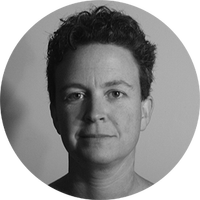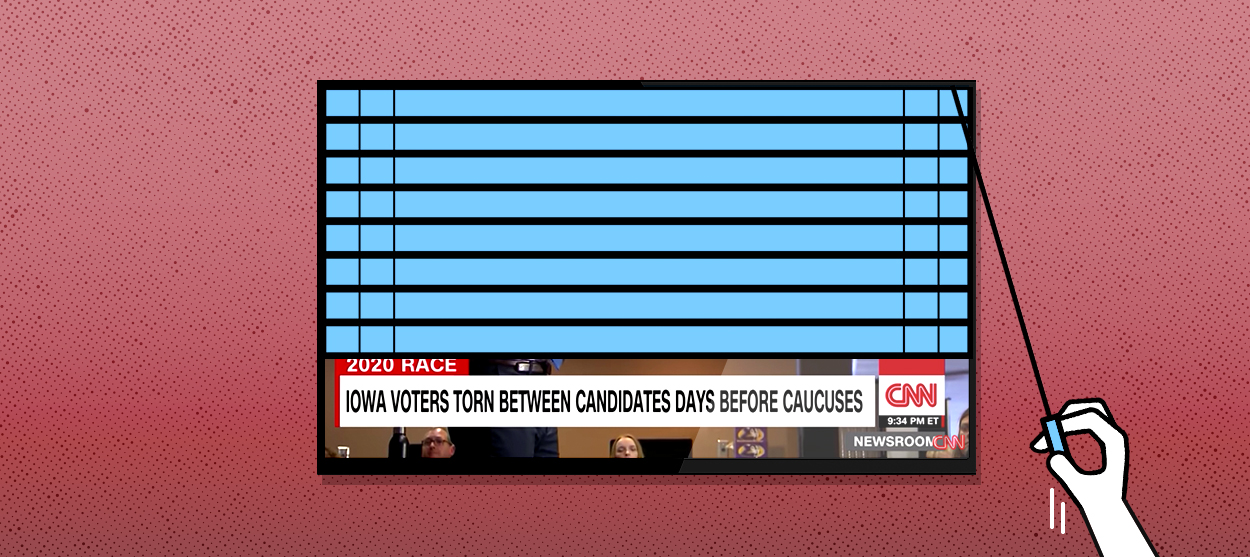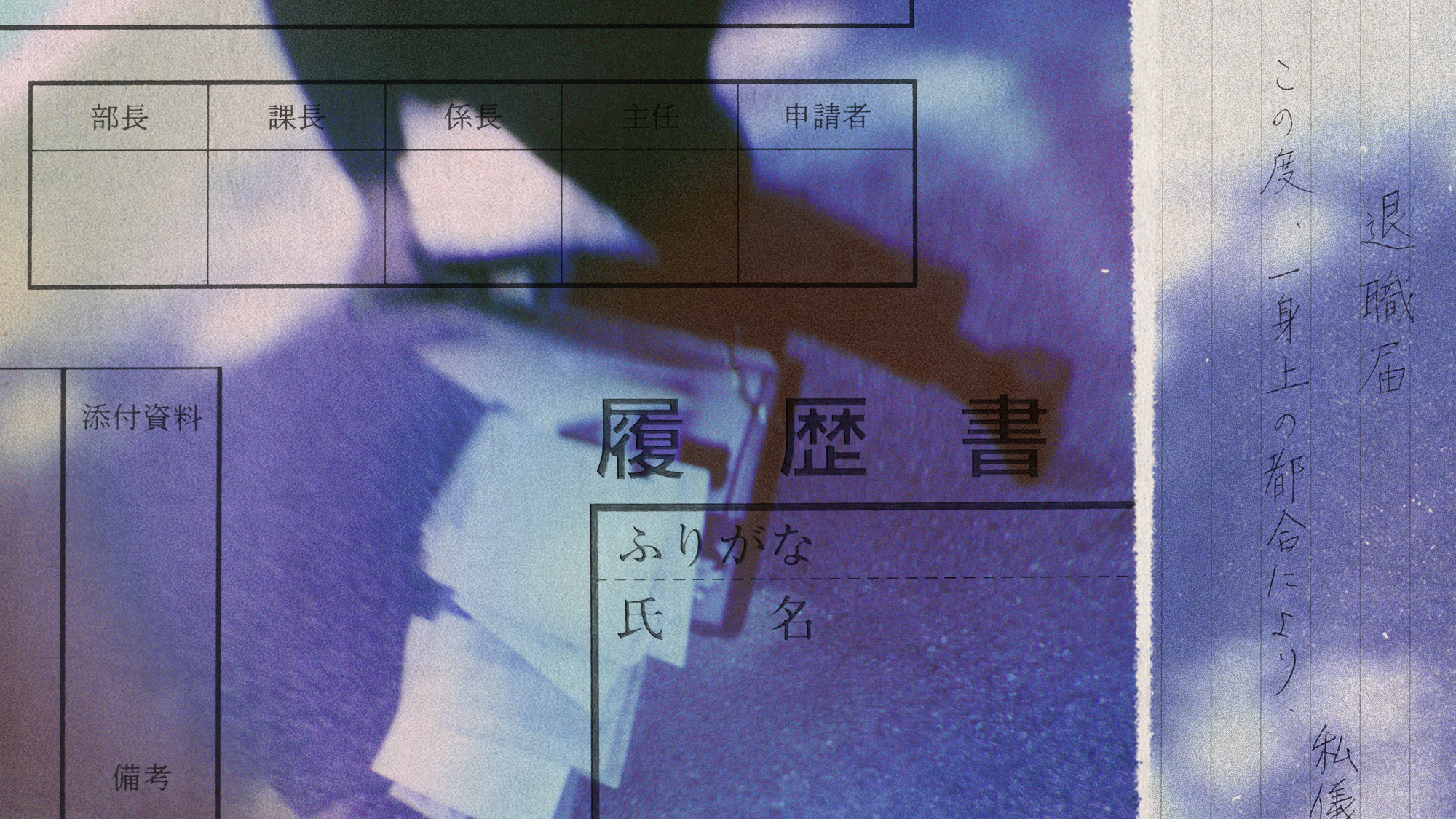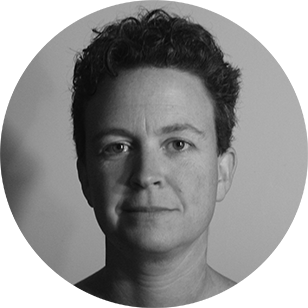It's okay not to follow the election
Grant yourself permission to tune out


As the Democratic presidential primary ramps up, I'm finding more and more of my time getting hijacked by political news. I read about some minor development in the race and form an immediate opinion. I go on Twitter, notice someone who disagrees, and scroll through their replies, feeling a pleasurable little rush at each scathing response and clenching my teeth when I see how many people actually agree with this idiot. I end up in a bad mood, with a lot of work to catch up on.
Maybe this sounds familiar to you. If you're reading this, there's a very good chance you're the sort of person who follows presidential elections closely. You probably have a vague feeling that doing so is a civic obligation. But I'm here to share some good news: It's okay to just stop paying attention to the election cycle.
Data confirms that elections are a great recipe for psychological stress. When the American Psychological Association surveyed U.S. residents in August of 2016, more than half of the respondents said the looming presidential election was a significant source of stress for them. And it was worse for those who spent a lot of time on social media.
The Week
Escape your echo chamber. Get the facts behind the news, plus analysis from multiple perspectives.

Sign up for The Week's Free Newsletters
From our morning news briefing to a weekly Good News Newsletter, get the best of The Week delivered directly to your inbox.
From our morning news briefing to a weekly Good News Newsletter, get the best of The Week delivered directly to your inbox.
Perhaps we find elections so stressful because we know in our heart of hearts that we have very little control over their results. This reminds me of workplace studies that have found workers are at heightened risk for cardiovascular disease if their jobs involve high demands but give them little control. Think of a factory worker who knows the company is foundering, and that her job is in danger, but she can't get her boss to listen to her ideas about how to run her line more efficiently. National elections are kind of like that. They revolve around important things that, as citizens, we feel responsible for addressing. But the difference each of our individual votes can make is miniscule. No wonder we end up screaming at strangers online.
Wouldn't it be great if we gave ourselves permission to tune out? If that feels like an abdication of responsibility, ask yourself two questions. One: Do you already know how you're going to vote? If so, there's no need to keep comparing the candidates. If not, you can probably make up your mind with a quick hop on the internet right before the election. It's certainly not a decision that requires hundreds of hours of research.
Two: Are you going to campaign for your candidate of choice? If not, your lone vote isn't worth worrying about too much. If so, what are you doing hate-reading that Facebook comment from your uncle's friend? Get out there and knock on some doors.
None of this is to say that we should quash our impulse toward engaging with politics. The issues on the line in this country right now are literally matters of life and death: health care, workers' rights, the treatment of refugees and immigrants, the climate crisis. What's so frustrating about national elections is that they touch on these issues but don't give us a chance to really change anything.
A free daily email with the biggest news stories of the day – and the best features from TheWeek.com
This problem is at the heart of Politics Is for Power, a new book by Tufts political scientist Eitan Hersh. He finds that a third of Americans say they spend two hours a day or more on politics, but four out of five of this group don't do any actual political work at all. Instead, they engage in what Hersh calls "political hobbyism," the mix of reading, arguing online, and railing to our friends and family about our opinions in a way that's more fandom than civic engagement. Such political hobbyists don't really take action. And they typically don't pay any attention to state and local politics, even though these are the arenas where we each have the most leverage.
Hersh argues that hobbyism isn't just useless. It actually obstructs effective political change. It encourages politicians to make exciting symbolic gestures that win them attention and new donors, but don't actually get anything done.
In contrast, Hersh points to the positive accomplishments of local organizers who form groups, build relationships with their neighbors, and collectively push the political system to address their issues. This work affects the organizers in ways that are the direct opposite of online hobbyism. Rather than promoting anger and frustration, it encourages empathy and improves people's mental health. As a recent paper about the psychological benefits of activism put it, "working toward something bigger than the self is a fundamental human striving … actions that are directed toward the welfare of others or one's community facilitate personal well-being."
If you really want to engage, there are plenty of ways to do that. Vote — not just in presidential elections but, especially, in state and local ones. Get your friends out to vote, too. But let's be real: Organizing may be deeply fulfilling, but it's also hard. Still, most of us can probably scrape up some time for political work if we really want to. If you can't find an occasional afternoon to devote to talking to your neighbors about an issue you care about, maybe you don't really care that much after all, and it's okay to tune out rather than get worked up.
Want more essential commentary and analysis like this delivered straight to your inbox? Sign up for The Week's "Today's best articles" newsletter here.
Livia Gershon writes about work, money, gender, and history for the Guardian, the Boston Globe, Longreads, and JSTOR Daily, among other places. She lives in Nashua, New Hampshire.
-
 Why quitting your job is so difficult in Japan
Why quitting your job is so difficult in JapanUnder the Radar Reluctance to change job and rise of ‘proxy quitters’ is a reaction to Japan’s ‘rigid’ labour market – but there are signs of change
-
 Gavin Newsom and Dr. Oz feud over fraud allegations
Gavin Newsom and Dr. Oz feud over fraud allegationsIn the Spotlight Newsom called Oz’s behavior ‘baseless and racist’
-
 ‘Admin night’: the TikTok trend turning paperwork into a party
‘Admin night’: the TikTok trend turning paperwork into a partyThe Explainer Grab your friends and make a night of tackling the most boring tasks
-
 The billionaires’ wealth tax: a catastrophe for California?
The billionaires’ wealth tax: a catastrophe for California?Talking Point Peter Thiel and Larry Page preparing to change state residency
-
 Bari Weiss’ ‘60 Minutes’ scandal is about more than one report
Bari Weiss’ ‘60 Minutes’ scandal is about more than one reportIN THE SPOTLIGHT By blocking an approved segment on a controversial prison holding US deportees in El Salvador, the editor-in-chief of CBS News has become the main story
-
 Has Zohran Mamdani shown the Democrats how to win again?
Has Zohran Mamdani shown the Democrats how to win again?Today’s Big Question New York City mayoral election touted as victory for left-wing populists but moderate centrist wins elsewhere present more complex path for Democratic Party
-
 Millions turn out for anti-Trump ‘No Kings’ rallies
Millions turn out for anti-Trump ‘No Kings’ ralliesSpeed Read An estimated 7 million people participated, 2 million more than at the first ‘No Kings’ protest in June
-
 Ghislaine Maxwell: angling for a Trump pardon
Ghislaine Maxwell: angling for a Trump pardonTalking Point Convicted sex trafficker's testimony could shed new light on president's links to Jeffrey Epstein
-
 The last words and final moments of 40 presidents
The last words and final moments of 40 presidentsThe Explainer Some are eloquent quotes worthy of the holders of the highest office in the nation, and others... aren't
-
 The JFK files: the truth at last?
The JFK files: the truth at last?In The Spotlight More than 64,000 previously classified documents relating the 1963 assassination of John F. Kennedy have been released by the Trump administration
-
 'Seriously, not literally': how should the world take Donald Trump?
'Seriously, not literally': how should the world take Donald Trump?Today's big question White House rhetoric and reality look likely to become increasingly blurred
